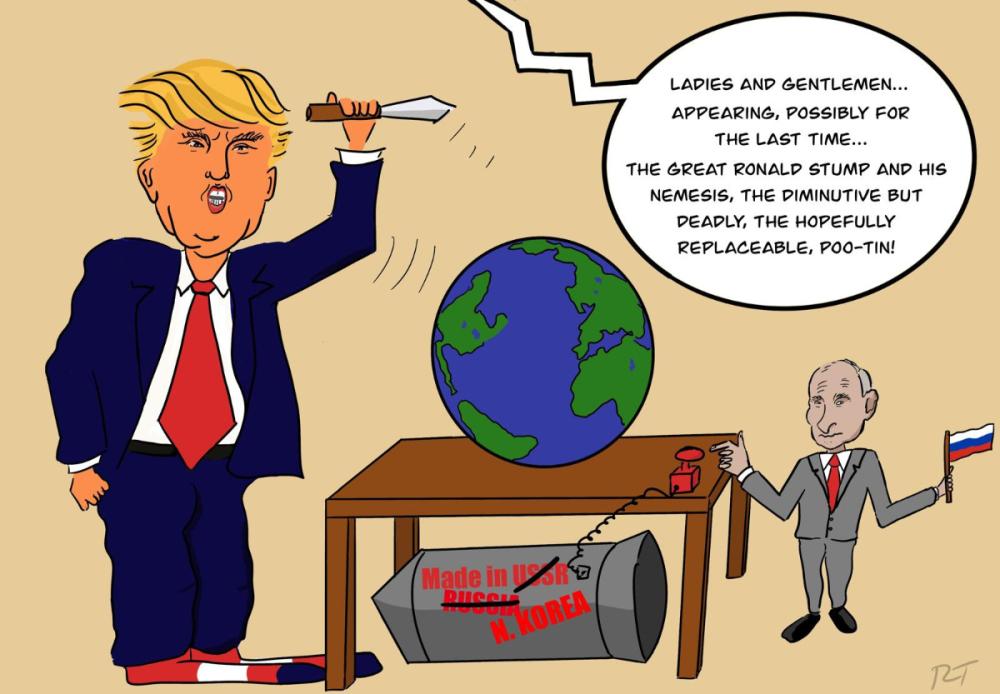search
date/time
 | North East Post A Voice of the Free Press |

Richard Trinder
Managing Editor
@richardtrinder
6:41 AM 15th August 2025
frontpage
Opinion
Trump Is Not Roosevelt, Putin Is Not Stalin

In the light of history, then, how should we regard the highly anticipated meeting between presidents Trump and Putin this Friday? Of course, neither Roosevelt nor Churchill were perfect citizens, but compared to Trump, they were models of propriety.
Joseph Vissarionovich Stalin, much admired by Putin, was a leader who oversaw 5-7 million deaths from starvation, mostly in Ukraine. Historians continue to debate whether the famine was intentional and a method of eliminating the growing independence movement in that country. Stalin went on to release thousands of prisoners, order the executions of political opponents, the removal of the leader of the military, widespread ethnic cleansing, and the assassination of defectors abroad.
Does any of that sound familiar?
Is this a course of action that Putin will follow? Or is he already well down that track?
Possibly, possibly not. But Putin will certainly try to emulate Stalin's hard-man tactics at his meeting with Trump. Why wouldn't he? Putin is facing a man with little or no backbone; not for nothing is he known as TACO (Trump always chickens out).
Russia is no longer bound by a treaty limiting the deployment of short- and medium-range missiles due to NATO's policies
Former President of Russia Dmitry Medvedev habitually warns the West about Russia's nuclear arsenal. Conversely, Trump gives the strong impression of being little more than a circus clown. Perhaps Trump's own missive, "you can't be too greedy", will help with the negotiations.
Trump is also a notorious liar with 30,573 false or misleading claims recorded during his first term as president - that's an astonishing 21 lies per day. For the clever, manipulative and rather intelligent Putin, this behaviour has got to look more like a rest day than proper work.
In 1945, during his meeting with Stalin, Roosevelt was belittled because of his failing health and his inability to keep his multiple extramarital affairs a secret. But at least he had a moral dimension to his character. Trump has tried the extramarital affairs approach too, but as to the moral dimension, perhaps less so.
The only thing we have to fear is fear itself
The respected historian and journalist Anne Applebaum has commented on the absence of both Europe and Ukraine at this meeting: "If you aren't at the table then you are on the menu". If, like the Yalta meeting, Putin and Trump carve up a chunk of Europe with little or no reference to their leaders, then surely a new form of cold war may well be the result.
So, do we have anything to fear from this meeting of the unworthy? The answer is almost certainly yes. A transactional president who sees every negotiation as a real-estate deal against a man who aspires to be a monster - you bet we do. This moment is a fine example of the shortcomings of Roosevelt's own words: "The only thing we have to fear is fear itself".
Perhaps the solution to the Ukraine crisis lies in Roosevelt's own recipe for achieving results in politics: "by persuading, flattering, juggling, improvising, reshuffling, harmonizing, conciliating, manipulating". In other words, any satisfactory outcome would stem from diligent, well-intentioned, hard work. But that's hardly Trump's defining characteristic, is it?